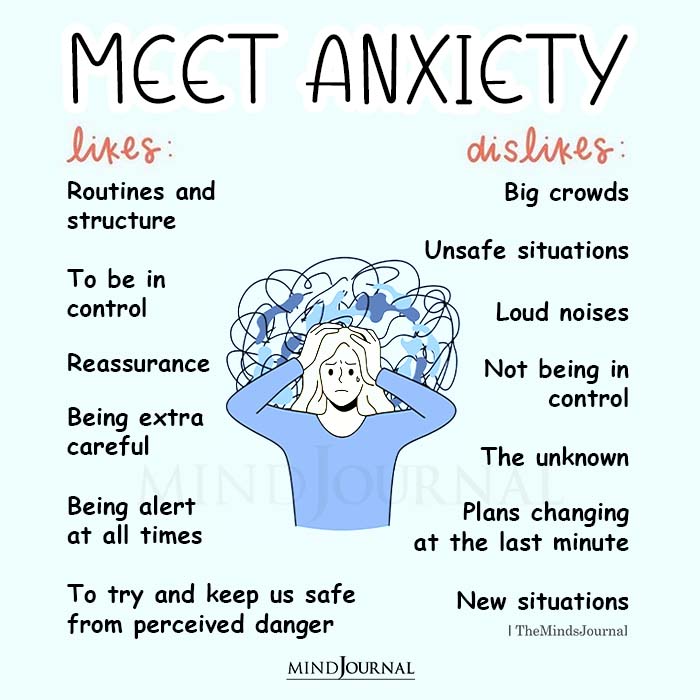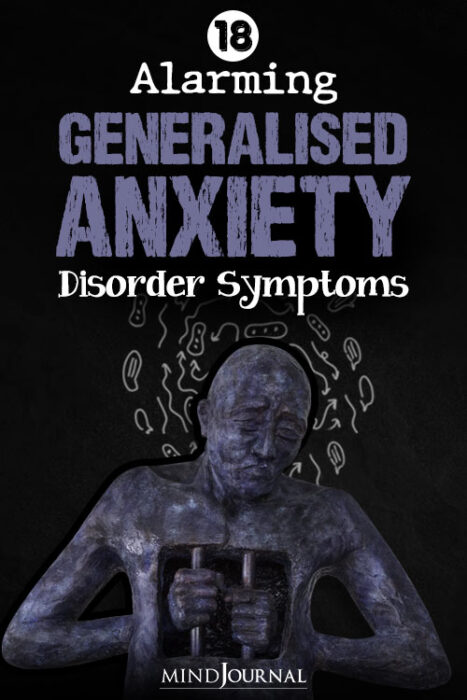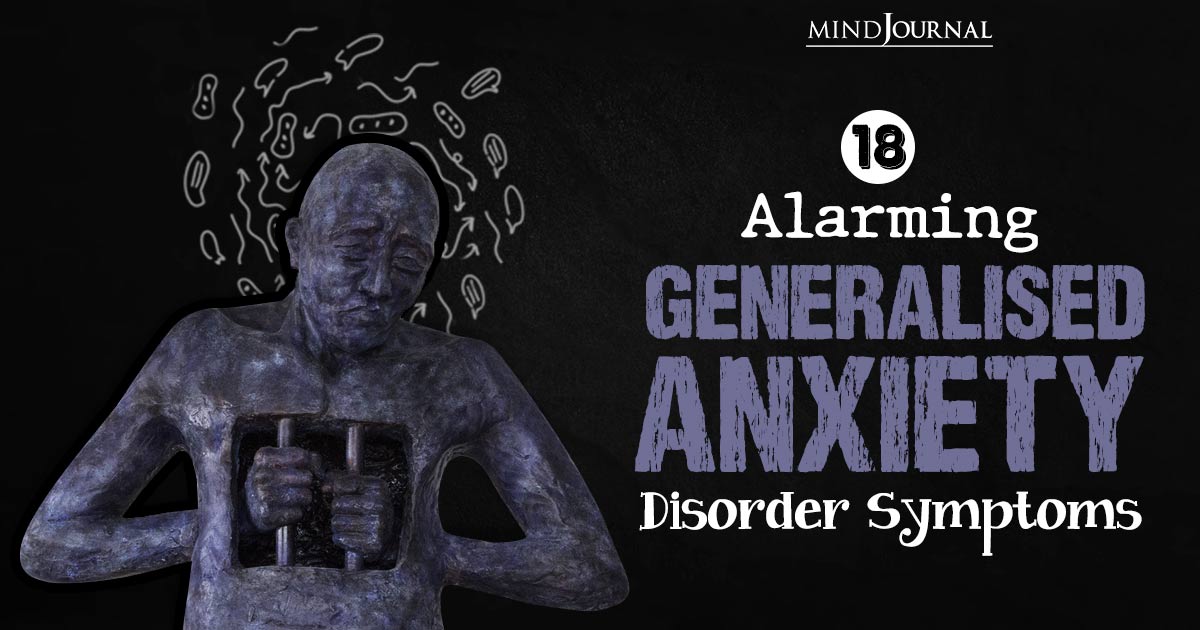Are you constantly caught in a whirlwind of worry and anxiety? Dive into the telltale signs of Generalized Anxiety Disorder and explore effective treatment options.
People normally experience stress and anxiety because of different reasons. However, when a person worries and fears constantly or experiences uneasiness, nervousness, and heightened tension without logical reason or apparent cause, these are possible signs of generalised anxiety disorder (GAD), a common anxiety disorder.
In this post, you’ll learn more about the signs and symptoms of generalized anxiety disorder, including some tips and reminders to keep you guided with this mental health condition.
Defining Generalised Anxiety Disorder
What is generalised anxiety disorder (GAD)? It’s a chronic mental health problem that can be due to chronic stress or a tragic or life-threatening event. The symptoms could be similar to obsessive-compulsive disorder and panic disorder. Also, it may occur with mood or other anxiety disorders.
Patients who suffer from GAD reach a point that their ability to function, think, perform daily activities, sleep, and relax are affected.
It’s a long-term challenge for people to live with this psychological condition. GAD may improve with medications or psychotherapy, as well as relaxation techniques and lifestyle modifications.

Related; How Yoga Can Help With Generalized Anxiety Disorder, Research Reveals
3 Generalised Anxiety Disorder Causes
The exact causes of Generalised Anxiety Disorder are not fully understood, it is believed to arise from a combination of biological, environmental, and psychological factors.
- Biological factors may include an imbalance of certain chemicals in the brain, a genetic predisposition, or a family history of anxiety disorders.
- Environmental factors such as a history of trauma, stressful life events, or chronic illness can contribute to the development of GAD.
- Psychological factors include, high levels of stress, or a negative thinking pattern making a person more susceptible to experiencing GAD.
Physical Signs And Symptoms Of Generalised Anxiety Disorder
The physical Generalised Anxiety Disorder symptoms include increased vital signs, which is a normal bodily response to stress with the activation of stress hormones, cortisol, and epinephrine.

When these hormones are at a high level, the person feels nervous, irritable, and trembles. It’s best to immediately book an appointment with a mental health professional for a thorough psychological assessment if these signs and symptoms are frequently experienced.
Here are the physical signs of Generalised Anxiety Disorder
- Increased sweating
- Irritability
- A feeling of being too tired or fatigue
- Problems sleeping or sleep deprivation
- Muscle aches and tension
- Trembling or feeling twitchy
- Nervousness
- Diarrhea or signs of irritable bowel syndrome
- Nausea
Generalised Anxiety Disorder Symptoms And Signs: Cognitive And Psychological
There are things that people do due to anxiety, which can heighten feelings of nervousness and fear. These people need expert psychological help from a psychiatrist and psychologist.
Check out these examples:
- Inability to let go of fear or worry
- Difficulty handling uncertainties in life
- Inappropriate and persistent worrying, stress, or anxiety
- Expecting worst-case outcomes
- Perceiving events and situations as threatening
- Overthinking plans and possible solutions
- Intense fear of making mistakes or wrong decisions
- Difficulty focusing and thinking rationally
- Inability to relax or feeling restless most of the time
Famous Personalities Who Suffered From GAD
Even the rich and the famous, like celebrities, are not exempt from anxiety disorders and other psychological problems. The likes of Emma Stone, Amanda Seyfried, and Lena Dunham were once diagnosed with a generalized anxiety disorder.
Check out how the GAD stories of these actresses:
Emma Stone:
She already had anxiety issues as early as seven years old, wherein she also had her first panic attack because she was convinced that their house was burning down. She started to see a therapist and was diagnosed with a generalized anxiety disorder (GAD).
She managed to deal with her anxiety by reaching out to her close friends and loved ones and talking with her therapist, as well as through meditation.
Amanda Seyfried:
She admitted taking selective serotonin reuptake inhibitor (SSRI), a commonly prescribed medication, to treat her depression and generalized anxiety disorder (GAD).
Lena Dunham:
The renowned writer, director, actress, and producer Lena Dunham also suffered from generalized anxiety disorder (GAD) and obsessive-compulsive disorder (OCD). She has revealed her condition in a show and her “Not That Kind of Girl” memoir.
Related: What Is Anticipatory Anxiety And How To Stop Worrying About The Future
Generalised Anxiety Disorder Diagnosis
What is Generalised anxiety disorder diagnosis (GAD)? It is a real challenge to diagnose, wherein it can mimic other mental health conditions, but without panic attacks involved.
People around would think that the person is just worrying too much, which leads to them not being diagnosed and treated early.
DSM-5 is a diagnostic tool used in evaluating psychiatric disorders, such as generalized anxiety treatment. Psychiatrists use proven diagnostic assessments in making accurate diagnoses and in ruling out other possibilities.
Here are the things you can expect during a Generalized Anxiety treatment or assessment:
- The psychiatrist will use standardized assessments, the diagnostic criteria, and their clinical judgment based on signs and symptoms to make a diagnosis.
- Interviews will be conducted using open-ended questions.
- The patient may also be required to answer complete self-report questionnaires.
- Mental health professionals use well-validated diagnostic interviews based on the Anxiety and Related Disorders Interview Schedule for DSM-5 (ADIS-5) and the Structured Clinical Interview for DSM Disorders (SCID). Both child and adult versions are available.
Signs That You Need Help – Generalised Anxiety Disorder Treatment
Usually, many people have already been struggling with generalized anxiety disorder signs and symptoms for a long time before seeking professional help. Also, because this condition doesn’t involve panic attacks, family members find the symptoms to be normal.
If physical signs and symptoms, such as headaches, restlessness, fatigue, and digestion problems, are accompanying your intense worry, and the anxiety continues, then, it’s high time to seek medical help.
Not living your life to the best because of intense fear or worry means that you have to talk to a mental health specialist. The early you’ll seek professional help, the earlier your condition will be diagnosed and treated, which means that you’ll have an improved quality of life the soonest possible time.
How To Overcome Generalised Anxiety Disorder?
Some examples of medications prescribed for GAD include antidepressants, such as selective serotonin reuptake inhibitors, or SSRI, and serotonin and norepinephrine reuptake inhibitors, or SNRI. Your doctor may also prescribe Busiperone (anti-anxiety medication) and Benzodiazepines (sedatives).
GAD can also be managed through lifestyle modifications, such as the following:
- Sleeping on time
- Eating healthy
- Avoiding vices, like smoking and alcohol
- Quitting coffee
- Avoiding recreational drugs
- Being physically active
- Relaxation techniques, such as yoga, meditation, breathing exercises, and visualization techniques
- Pursuing productive activities or hobbies, like gardening, painting, pottery, poem writing, songwriting, and making art crafts
Related: 10 Surprisingly Effective Natural Remedies for Anxiety
Conclusion
It’s not easy to deal with a generalized anxiety disorder because the signs and symptoms appear to be normal to other people. GAD doesn’t present panic attacks.
A combination of physical, cognitive, emotional, and mental signs and symptoms could help diagnose GAD, most especially if they occur too often and impair a person’s normal functioning, thought process, and decision-making.









Leave a Reply
You must be logged in to post a comment.